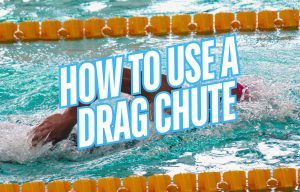
How to Use a Drag Chute for Faster Swimming
Looking for tips on how to use a drag chute for improved swim performances? Read on for some proven tips, sets, and pointers for training with a chute.
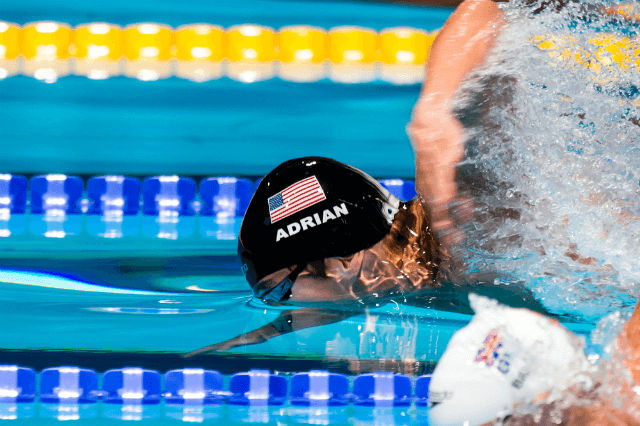
If you are serious about wanting to make progress in an area of your swimming, whether it is swimming less strokes per 50, having better breakouts, or the broadest goal of swimming faster, then measuring it is critical.
Saying that you want to be the best swimmer you can be is one thing, but how important can you claim your swimming to be if you aren’t actually tracking what you are doing in the pool?
For instance:
Look:
This isn’t a case to journal and monitor every last little thing in your training.
You don’t need to write out the number of steps you take on a daily basis, or the precise caloric intake of your diet, or the stroke count of every single lap of swimming you do. Whether you are using an old-school notebook to monitor your training or one of the latest and greatest swim watches, there is such a thing as too much data.
(But hey, if that is what works for you, than all the power to you.)
On the other hand…
You definitely should be noting the couple of things in your swimming that will make the most profound impact on whether or not you achieve your goals.
If you’re serious about making substantial and profound improvement in your swimming, and you are going through the motions of your training, not bothering to stop and see what is working, and what is not, than you are leaving a lot of precious information and motivation on the table.
After all, if you are truly down to improve a facet of your swimming, you oughta be measuring it.
So sit back, think about the 1-2 things that will have the biggest amount of impact on your training, and starting logging it.
Not tomorrow…
Not next week…
But at today’s practice.
And when you are ready, join a heap of former and current Olympians, national champions, and top level Division 1 teams that are using YourSwimBook to log their workouts.

Olivier Poirier-Leroy Olivier Poirier-Leroy is the founder of YourSwimLog.com. He is an author, former national level swimmer, two-time Olympic Trials qualifier, and swim coach.
✅ Free shipping on Orders over $49
✅ Price Match Guarantee
✅ Best selection of gear for training and competition
✅ Fast and Easy Returns

“This is the best book I have ever seen concerning mental training.” — Ray Benecki, Head Coach, The FISH Swim Team


Looking for tips on how to use a drag chute for improved swim performances? Read on for some proven tips, sets, and pointers for training with a chute.
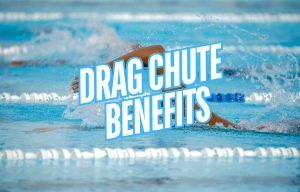
Ready to take your swimming to the next level? Here are seven ways that a drag chute can help you become a better and faster swimmer.
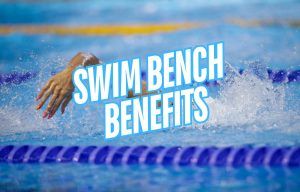
Wondering if a swim bench can help improve your swimming? Here are six benefits of swim benches for better technique, more power, and faster swimming.
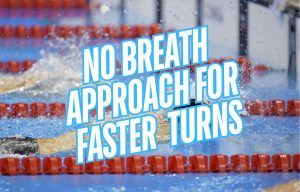
Not breathing into the walls is one of the fundamental skills developing swimmers are taught. Here is how powerful a no-breath approach is for turn and swim speed. Strong training habits are something swimmers hear a lot about from their earliest days of their competitive swimming careers. The greatest hits
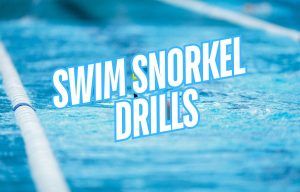
Drills with a swim snorkel are one of the best ways to maximize engagement and skill development. Here are five swim snorkel drills to try for faster swimming.
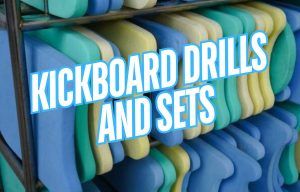
Looking to add some flavor to your kick sets and workouts? Here are some kickboard drills swimmers can use for faster swimming.
SITE
SHOP
GUIDES

LANE 6 PUBLISHING LLC © 2012-2025
Join 33,000+ swimmers and swim coaches learning what it takes to swim faster.
Technique tips, training research, mental training skills, and lessons and advice from the best swimmers and coaches on the planet.
No Spam, Ever. Unsubscribe anytime.
